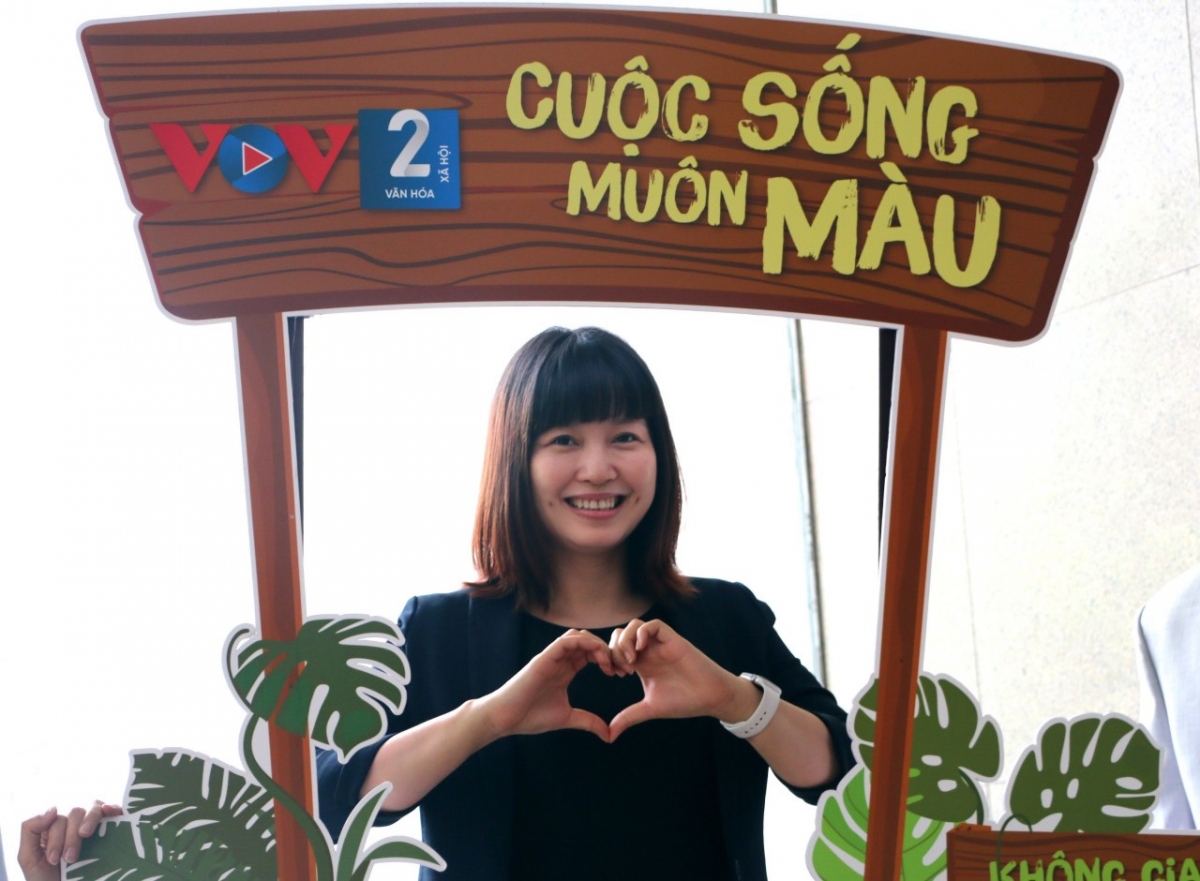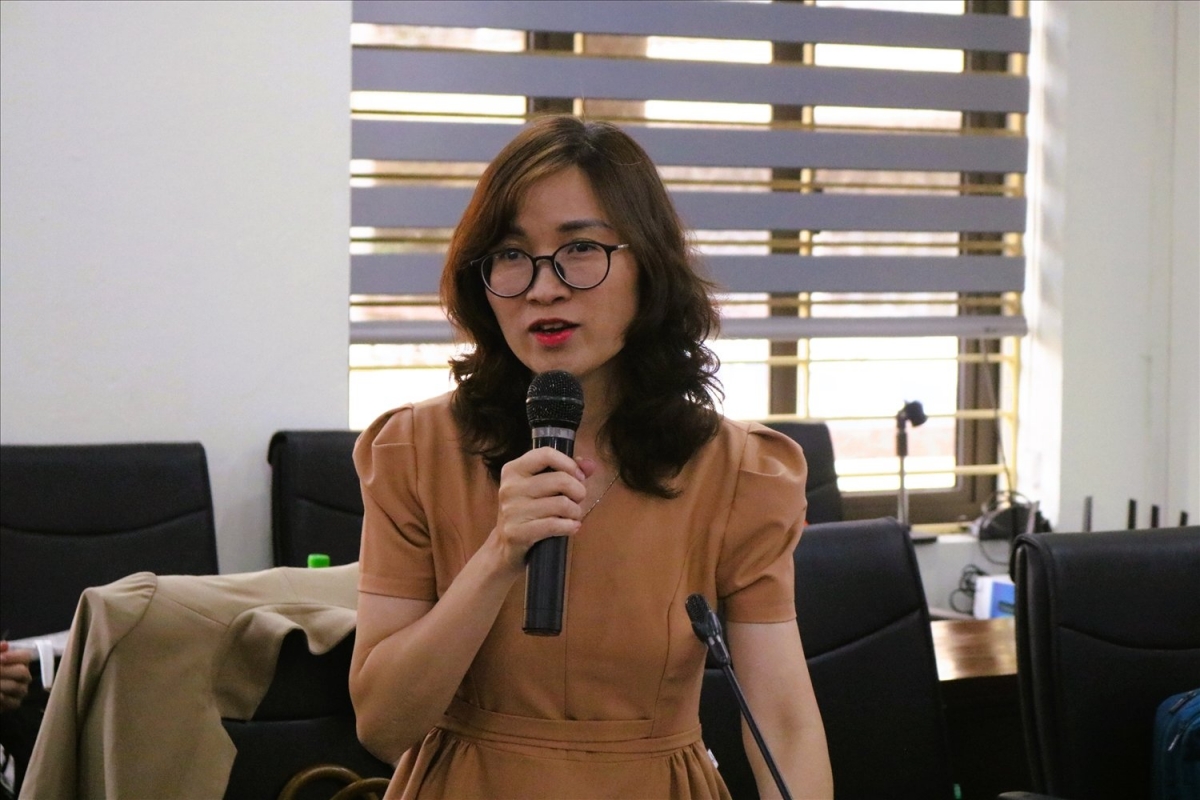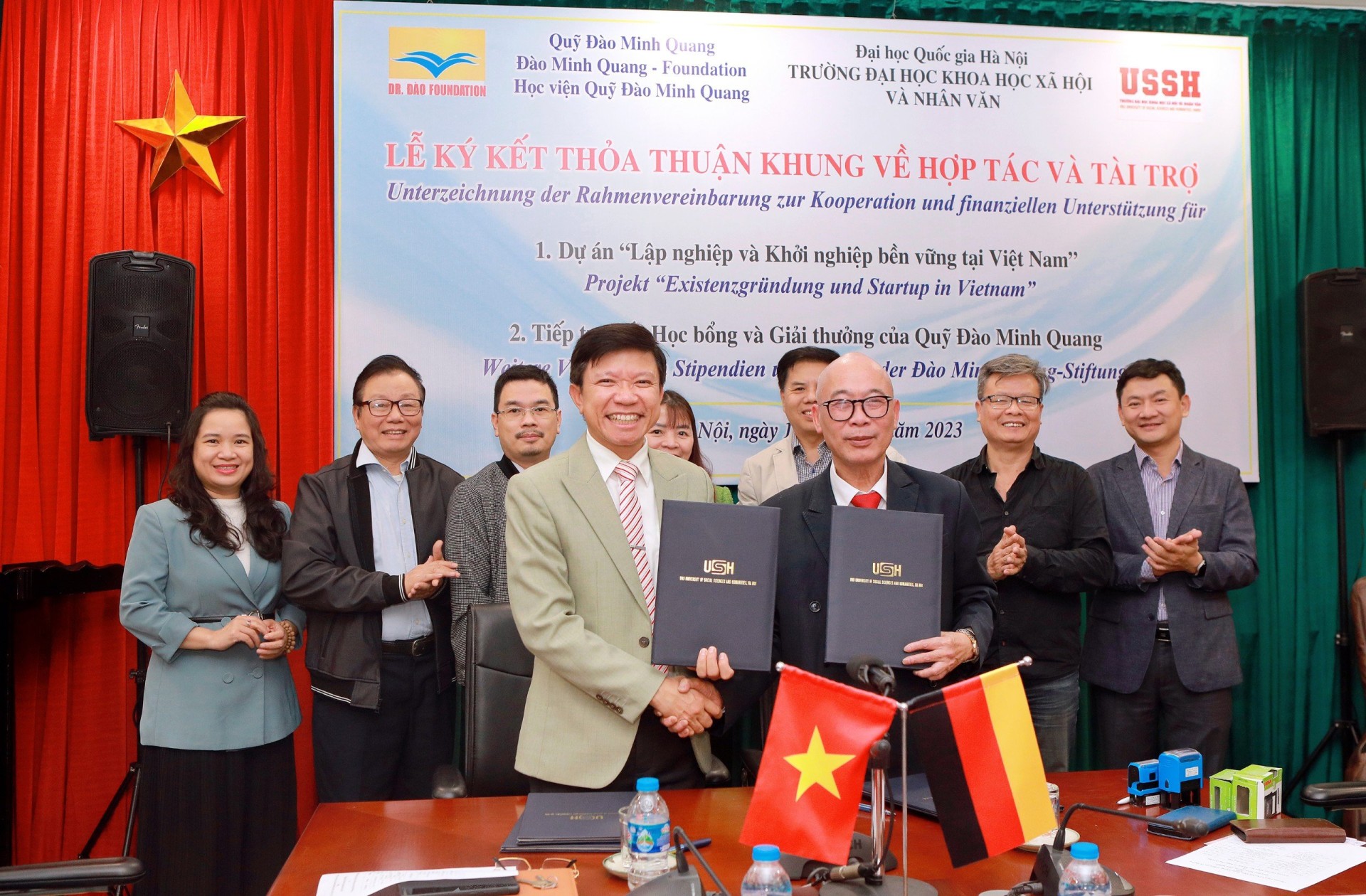Higher education today has many strong changes, requiring universities to renew their perspectives on developing interdisciplinary/transdisciplinary training for learners. With the new needs arising in professions, training human resources with solid foundation knowledge, self-study capacity, creativity, the ability to research, study, and work in an interdisciplinary and transdisciplinary direction will create dynamic and creative human resources that can easily adapt to new challenging requirements of the labor market, avoiding waste.
Carrying out the noble mission of training high-quality human resources in the field of social sciences and humanities, the University of Social Sciences and Humanities, Vietnam National University, Hanoi has been innovating its training programs so that its students can update new knowledge and new ideas while still maintaining its elite identity and having enough capacity to integrate internationally.
Integrate knowledge, save timeInterdisciplinary and transdisciplinary training is understood as integrating different fields in the same training field, thereby equipping learners with specialized, multidisciplinary and multi-disciplinary knowledge, and comprehensive professional skills so that learners can easily adapt to the rapid changes of the labor market. Interdisciplinary/transdisciplinary training meets well the time and knowledge base to create new training programs while still ensuring enough general, basic and specialized knowledge.
According to Dr. Pham Hoang Giang, Head of the Faculty of Philosophy, University of Social Sciences and Humanities, VNU, interdisciplinary training is a key task set by the school.
In the current training process, it is difficult to separate subjects. “For example, studying philosophy does not give you a specific job. However, if you are a student and you are recruited, any business will require critical thinking, organizational skills, and the ability to generalize problems, these skills are part of philosophical methodology.
Therefore, we combine methodologies and philosophical perspectives into fields such as human resource management, economic management, cultural management, etc. to meet market needs" - Dr. Pham Hoang Giang emphasized.
Dr. Pham Hoang Giang (right) is interviewed at VOV2 studio.
Besides Philosophy, the Oriental Studies majors of the University of Social Sciences and Humanities have been identified and implemented in a multidisciplinary and interdisciplinary approach. At the undergraduate level, the Faculty of Oriental Studies manages 4 training majors: Oriental Studies, Southeast Asian Studies, Japanese Studies and Korean Studies. In particular, students studying Oriental Studies are also divided into 3 majors: Indian Studies, Chinese Studies and Thai Studies. Dr. Nguyen Thi Thu Huong - Deputy Head of the Faculty of Oriental Studies said: "Focusing on research on these countries means that our Faculty trains experts and researchers to work with the "dragons" and "tigers" of Asia - countries with miraculous development, spreading the image of East Asian culture and knowledge throughout the world".
According to Dr. Nguyen Thi Thu Huong - Deputy Head of the Faculty of Oriental Studies, the creation of an intersection between disciplines brings great results in terms of regional orientation, while providing in-depth knowledge of the country of study. By providing a multidimensional perspective for students in approaching knowledge from theory to practical application, students' learning will be optimized.
Dr. Nguyen Thi Thu Huong - Deputy Head of Oriental Studies Department, University of Social Sciences and Humanities, VNU
Dual degree mechanism - opportunities and extra points for students of VNU HanoiWith the strength of a large training institution with a long tradition and a team of excellent lecturers with a full range of specialized majors in basic science fields, the "dual degree" mechanism of Hanoi National University is an opportunity for students to make the most of their time studying and training to obtain 2 bachelor's degrees during their university studies because Hanoi National University recognizes the credits students have earned when studying the first major to use when studying the second major. This is also an attraction for candidates with dreams and outstanding learning abilities. In fact, there have been students who have graduated with honors in both majors in less than 4 years.
Meeting the need for high-quality human resourcesPreviously, the training of human resources in the field of composition, theory, and criticism of literature and art was mainly undertaken by specialized universities (civil and military art school systems) and specialized pedagogical universities (art pedagogical schools). Currently, in response to the needs of society and the development of universities into multidisciplinary universities, this field is being developed and recruited by universities, both public and non-public. A typical example is the training in the fields of literature, cinema, art, etc., which is being built in an interdisciplinary direction at the Faculty of Literature, University of Social Sciences and Humanities.
Identifying the need for innovation in high-quality human resources, in the 2024 school year, the Faculty of Literature will launch a new major, Cinema and Popular Arts, based on the foundation of the majors of Literature and Han Nom.
Associate Professor Dr. Hoang Cam Giang, Head of the Department of Art Studies, Faculty of Literature shared: "In the world and in Vietnam, it is very natural and also a trend for a student studying basic sciences such as literature to be able to work in jobs related to culture, arts, and communication. The Faculty is trying to combine, find solutions, and create interdisciplinary programs so that after graduating from the Faculty of Literature, students can still do diverse jobs and adapt flexibly to the dynamic changes of the market and current cultural and artistic needs."
Associate Professor, Dr. Hoang Cam Giang, Head of Art Studies Department, Faculty of Literature, University of Social Sciences and Humanities, VNU
In addition to general subjects in the social sciences and humanities, students are equipped with basic knowledge of Vietnamese literature and Vietnamese language, literary theory and criticism, theater and cinema criticism, film and television scriptwriting, etc.
According to the training orientation of the faculty, bachelors of Literature have both broad and deep specialized knowledge, good working skills, and are well adapted to jobs related to literature, journalism, communication, research, teaching, socio-politics...
Diverse scholarship programsThe University of Social Sciences and Humanities has had a very practical policy since 2022 when it, together with Hanoi National University, built a scholarship fund for 9 basic science majors including Literature, History, Philosophy, Religious Studies, Political Science, Anthropology, Vietnamese Studies, Linguistics, and Han Nom. This funding source is balanced and built by the school itself.
From this fund, students will receive scholarships worth 50 million VND/year/student. Of which, students do not have to pay all tuition fees, receive 2 million VND in living expenses each month and are supported to waive all costs when staying in the dormitory. In particular, students will have a professor to accompany and support them in their studies starting from the first year.

To encourage and expand students' learning opportunities, the Faculty of Oriental Studies has also developed international cooperation, bringing in many scholarships, study abroad scholarships, internships abroad or at foreign enterprises for students. The Faculty also actively cooperates with dozens of universities in the region such as Peking University, Beijing Foreign Studies University (China), Seoul University, Busan University of Foreign Studies, University of Traditional Culture, Kwangwoon University (Korea), Chulalongkorn University (Thailand), Delhi University, Calcutta University (India)... to have long-term and short-term scholarships to study abroad, at all levels from enrichment, credit recognition, to university training cooperation, or master's and doctoral study abroad scholarship programs.
In addition, the University of Social Sciences and Humanities, VNU has signed a framework agreement on cooperation and funding with Dao Minh Quang Foundation (Germany) in the Project "Entrepreneurship and Sustainable Entrepreneurship in Vietnam" and continues to grant scholarships to students in the school. The Foundation will establish and open a center on entrepreneurship, orienting students through developing curriculum, lectures, and training sessions to actualize and realize ideas related to entrepreneurship.
The University of Social Sciences and Humanities in particular, and the Vietnam National University, Hanoi, has a great advantage in adapting to training human resources in the digital age because it is a multidisciplinary university center, a multi-field university, harmonizing the basic sciences and applied sciences... leading in the country. With the social sciences and humanities, the university has continued to make important contributions to preserving and developing culture, education and other fields to bring our country to increasingly integrated development.
Signing ceremony of framework agreement on cooperation and funding for the Project "Sustainable Entrepreneurship and Start-up in Vietnam" between the University of Social Sciences and Humanities, VNU and Dao Minh Quang Foundation (Federal Republic of Germany)
On October 18, 2016, the Prime Minister issued Decision No. 1982/QD-TTg approving the Vietnam National Qualifications Framework. Accordingly, on March 30, 2020, the Prime Minister issued Decision No. 436/QD-TTg assigning the Ministry of Education and Training to preside over and coordinate with relevant parties to develop and promulgate training program standards for majors and groups of majors according to each training field of higher education.
One of the criteria for assessing the level of integration between countries in the region and the world today is the mutual recognition of the level and quality of human resources. Accordingly, the urgent requirement is to build training program standards to help universities improve their competitiveness in cross-border human resource training.
VOV2: Educational trends in the 4.0 era - Interdisciplinary and transdisciplinary training




